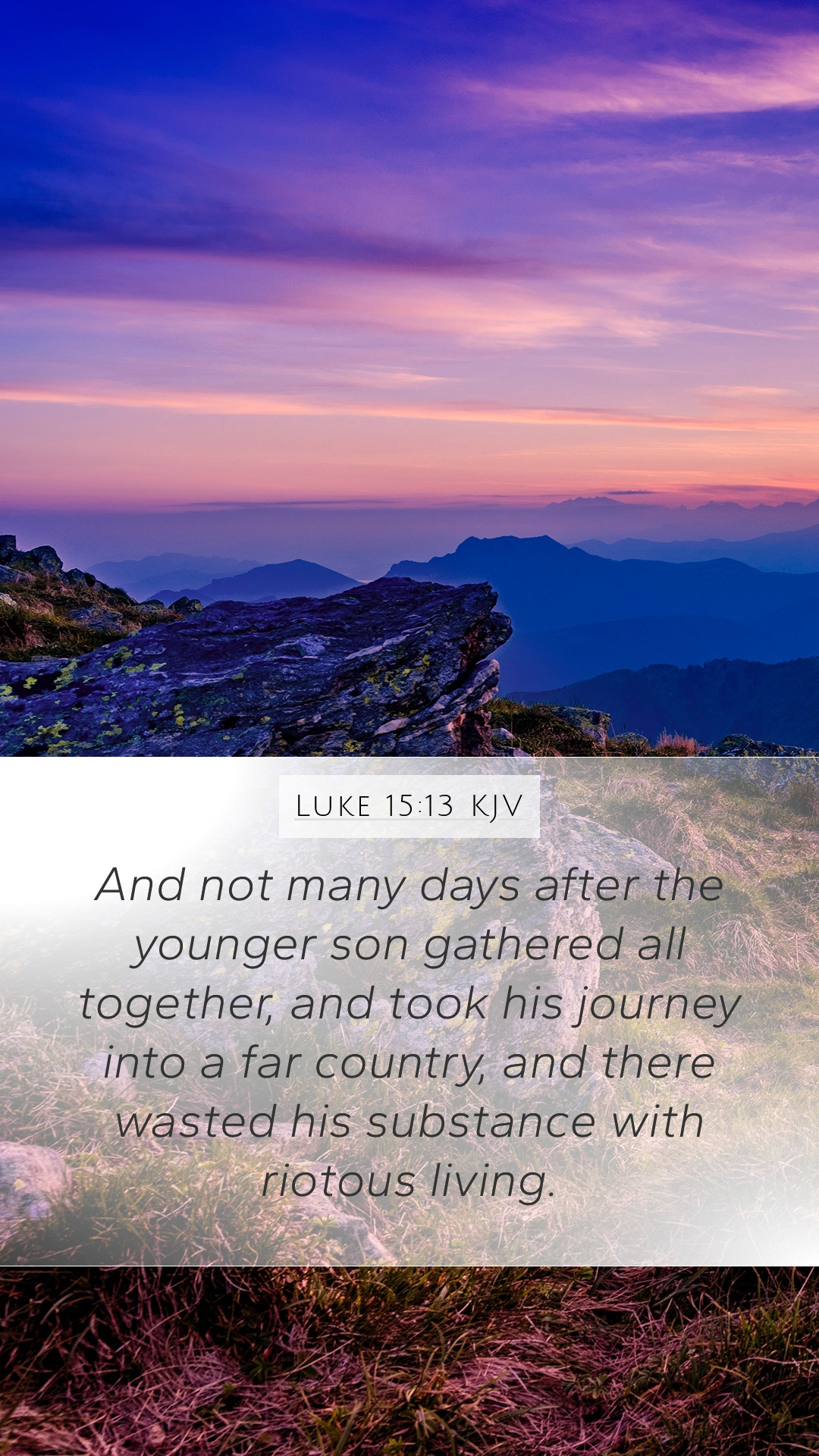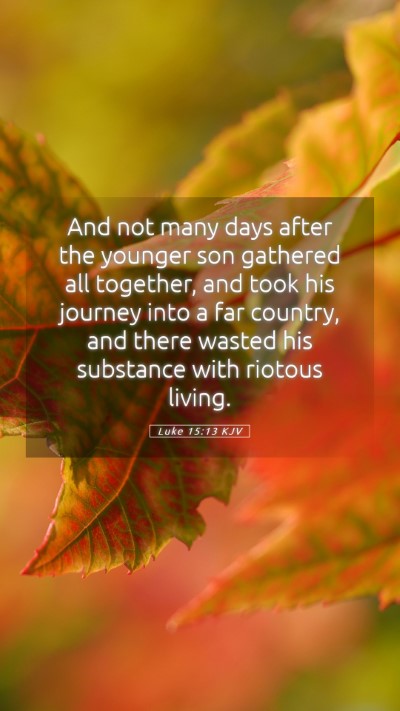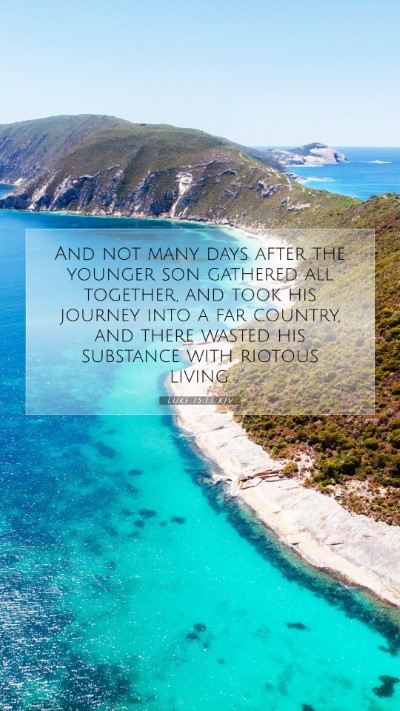Bible Verse Meaning: Luke 15:13
Verse Reference: Luke 15:13 - "Not many days later, the younger son gathered all he had and took a journey into a far country, and there he squandered his property in reckless living."
Overview
This verse is situated within the parable of the Prodigal Son, illustrating themes of rebellion, wastefulness, and the consequences of living apart from familial and divine guidance. It is pivotal in understanding significant teachings of Jesus on repentance and forgiveness.
Exegetical Insights
Matthew Henry's Commentary: Henry emphasizes the gravity of the younger son’s decision to leave home. He notes that the act of gathering all he had reflects a disdain for familial relationships and responsibilities. The phrase "far country" symbolizes not only a physical distance but also a spiritual estrangement from his father's values.
Albert Barnes' Analysis: Barnes points out that the choice to journey to a far country underscores a common human tendency to seek freedom and fulfillment outside of familial bonds and divine constraints. This decision ultimately leads to a wasting of resources, which serves as a lesson on the futility of seeking satisfaction in worldly pleasures.
Adam Clarke's Perspective: Clarke connects this verse to the notion of youthful folly, suggesting that the younger son's quest for life away from home is reflective of a heart led astray by temptation. The "reckless living" not only indicates the squandering of wealth but symbolizes the moral degradation that accompanies such choices.
Analysis of Key Themes
- Rebellion Against Authority: The younger son's departure can be seen as a rejection of his father's authority, symbolizing a broader spiritual rebellion against God's commandments.
- Consequences of Poor Choices: The following verses depict the fallout of his actions, teaching that reckless living leads to ruin and a deep sense of need.
- The Nature of Regret: As the narrative progresses, it reflects on human nature—how often we turn back after the realization of the consequences of our actions.
- Parental Love and Forgiveness: The overarching theme portrays the father's unconditional love and willingness to forgive, contrasting sharply with the son’s initial disregard.
Applying Bible Verse Interpretations to Daily Life
This passage encourages readers to reflect on their own lives and the decisions they make. It serves as a reminder of the importance of staying connected to family and faith, and that striving for independence should not come at the cost of relationships. The recklessness of the son calls for self-examination regarding the choices one makes in pursuit of happiness.
Significance in Christian Teachings
The parable illustrates the depth of God’s grace, and that no matter how far one strays, return and redemption are always possible. This reflects the core message of the Gospel—repentance and the joy of being restored to a right relationship with God.
Related Scriptures for Further Study
- Matthew 18:12-14 - The Parable of the Lost Sheep
- Luke 15:11-32 - The full context of the Parable of the Prodigal Son
- Romans 5:8 - Discussing the unconditional love of God
Conclusion
In conclusion, Luke 15:13 serves as a powerful illustration of human folly, the allure of temptation, and the redemptive love of a father, reminiscent of God's grace towards humanity. The teachings derived from this verse are essential for a comprehensive understanding of key biblical themes such as sin, repentance, and forgiveness.


